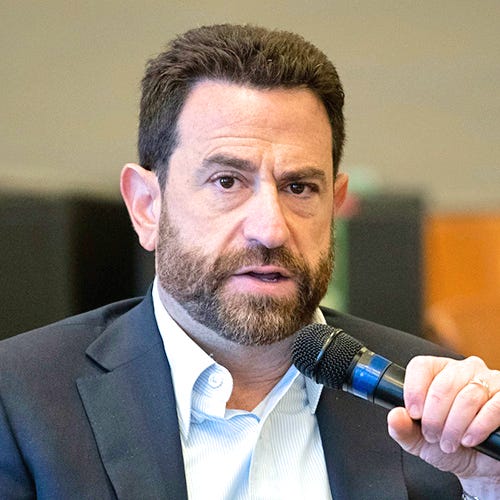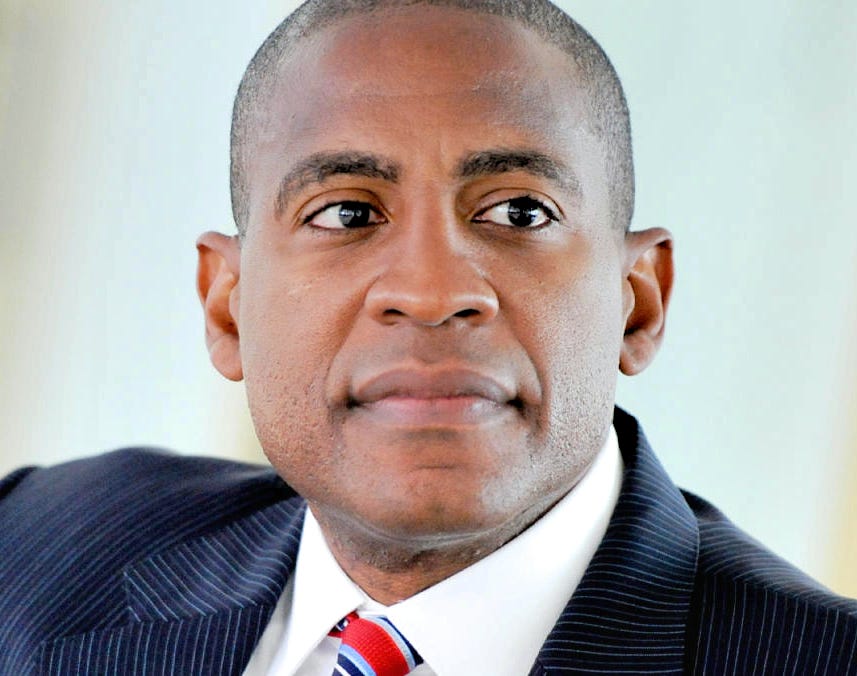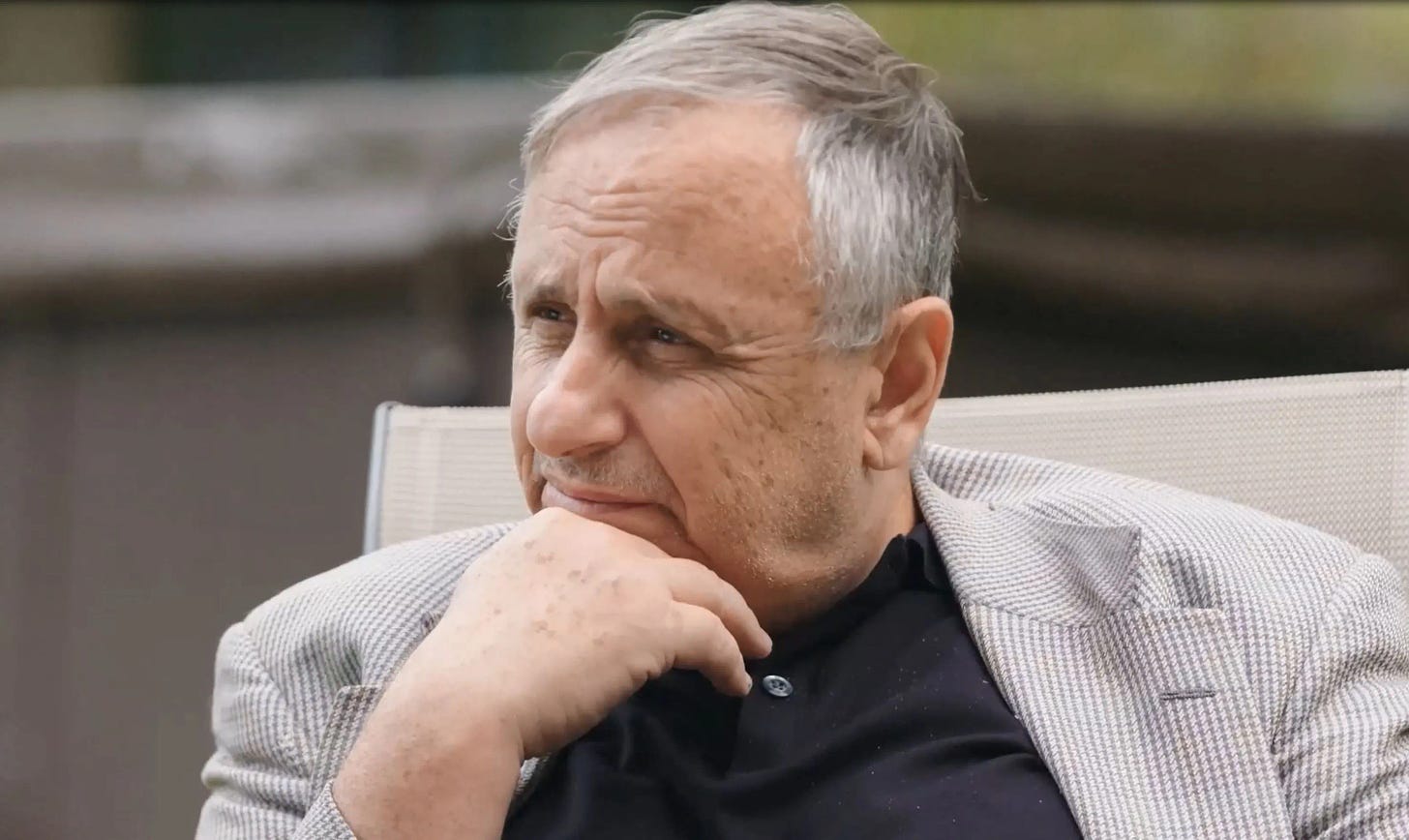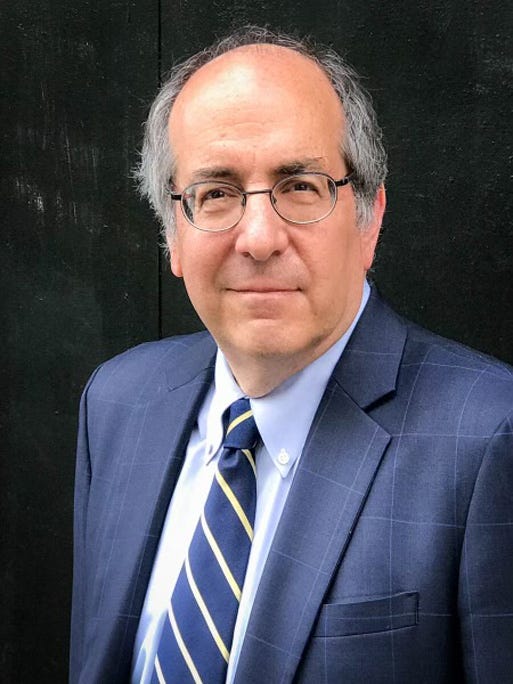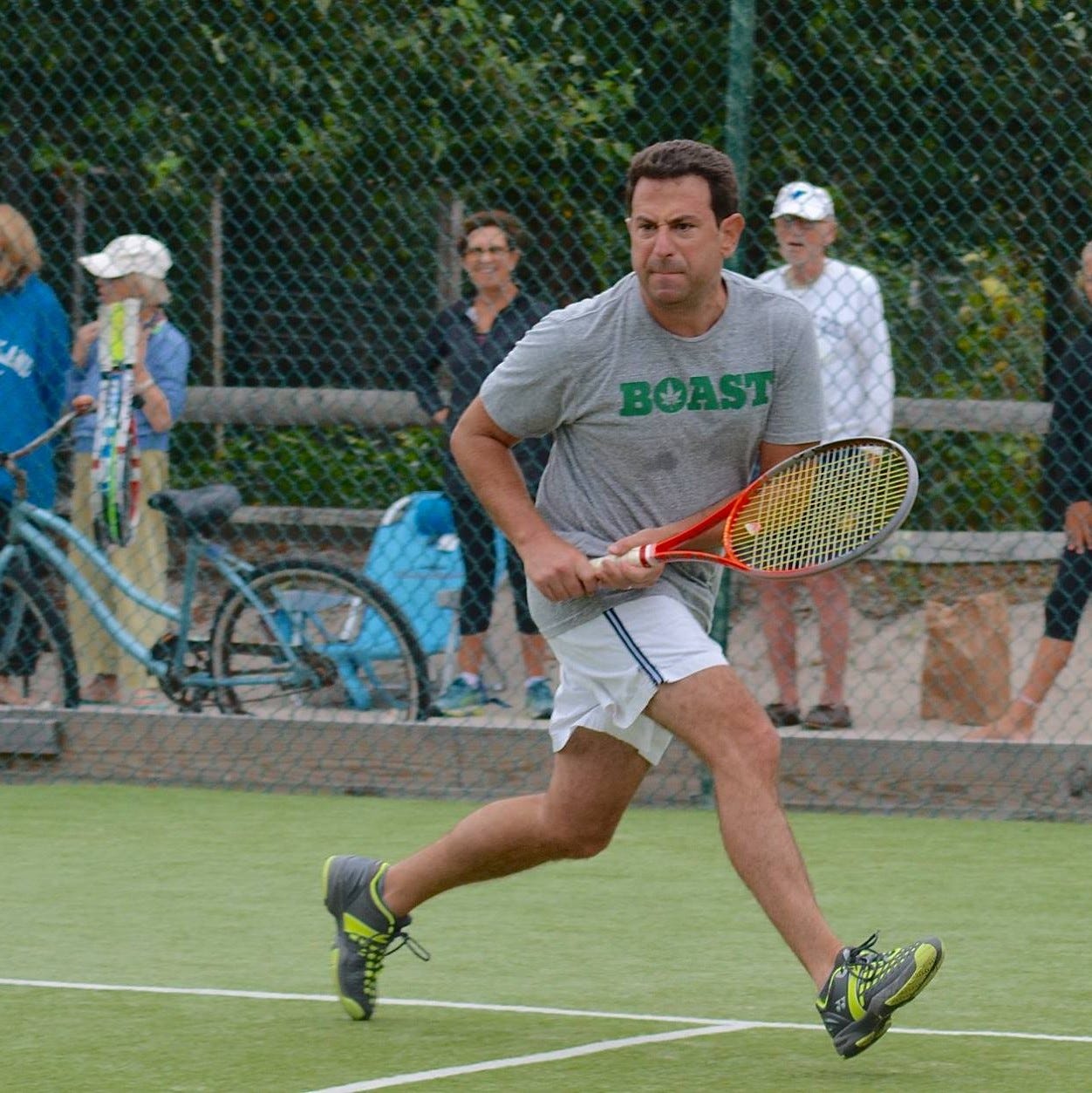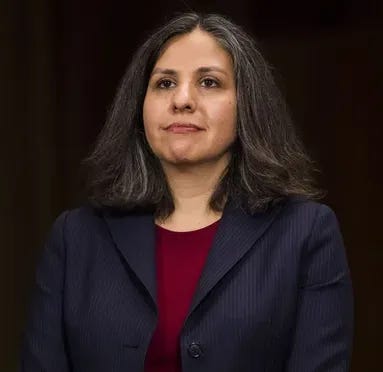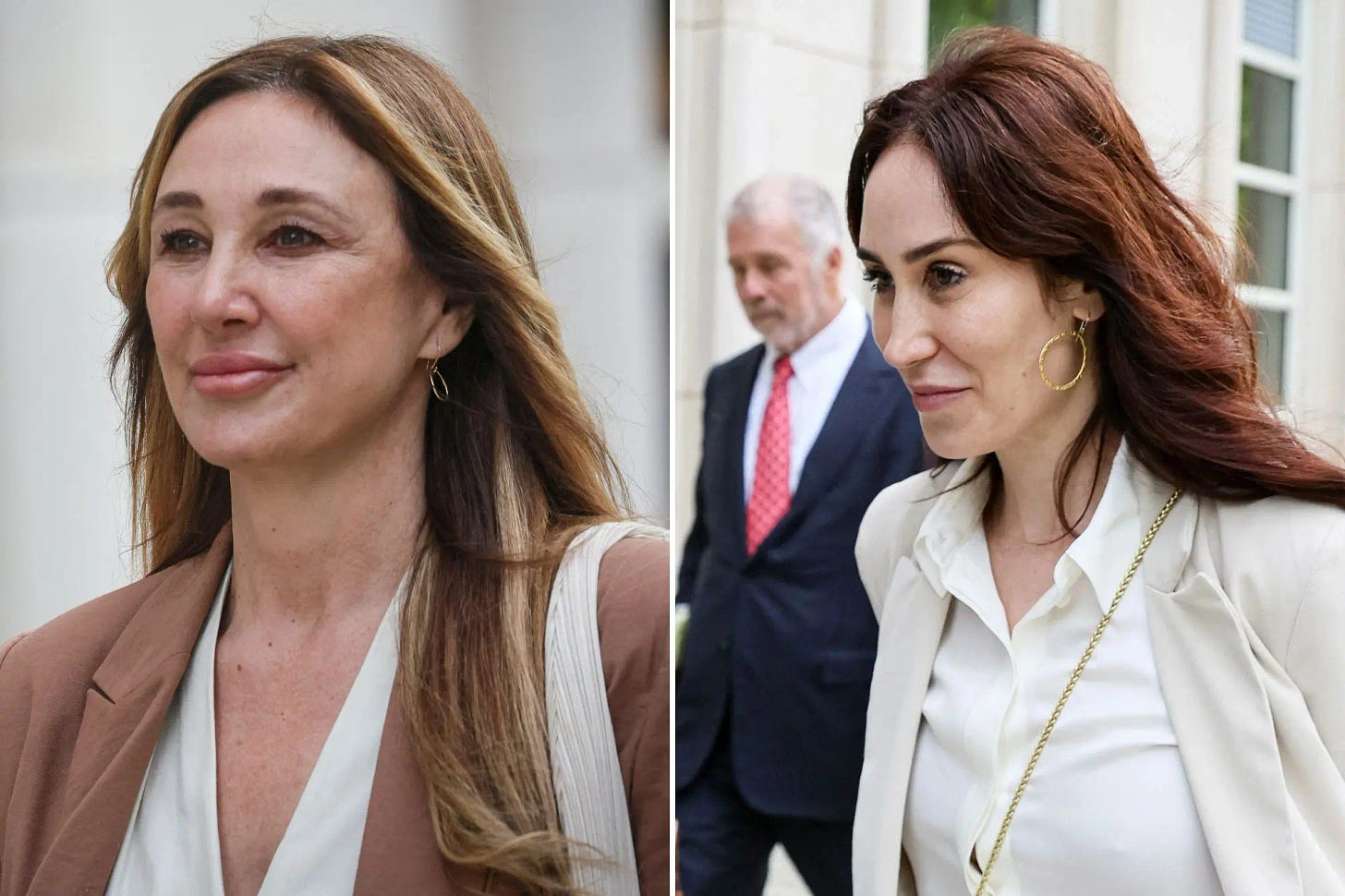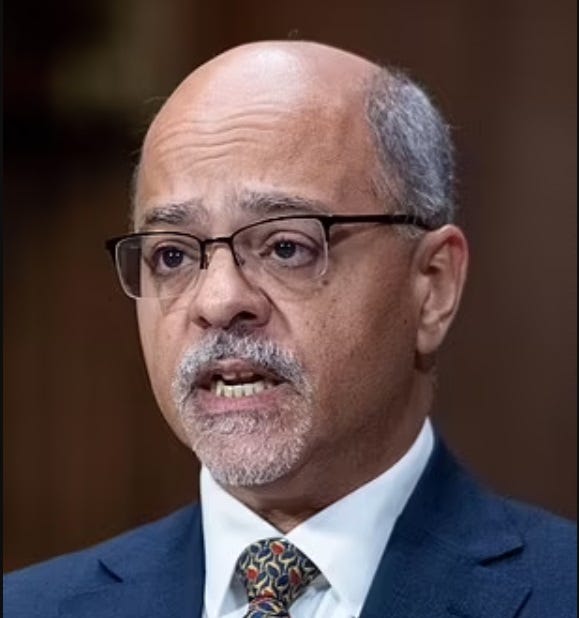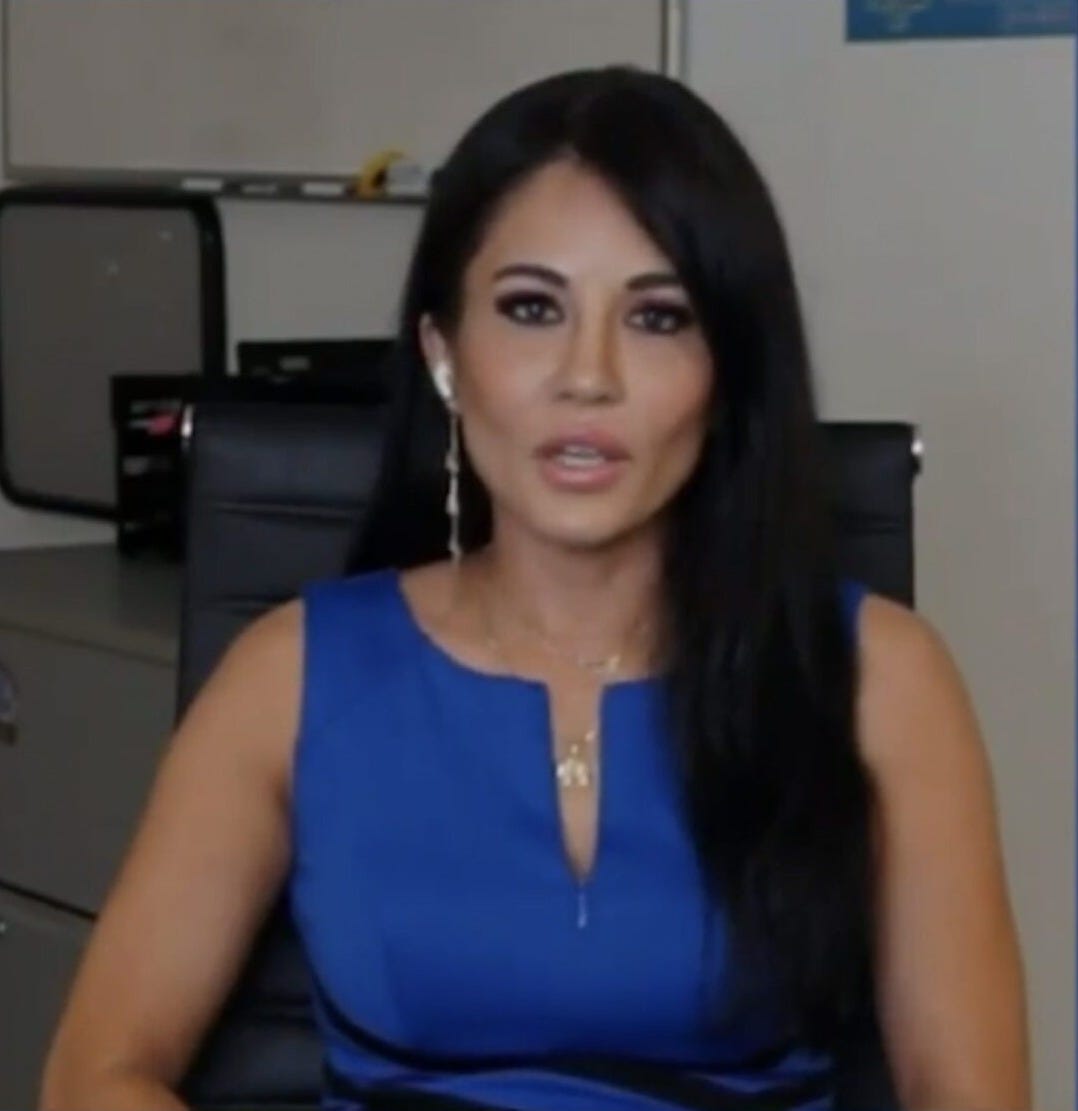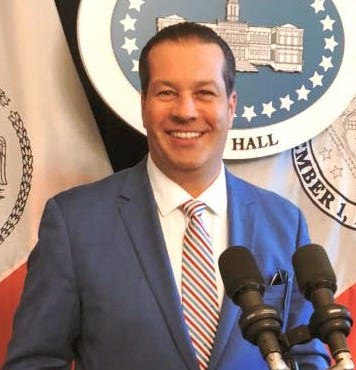Investigative Journalist Puts EDNY Federal Judges Under Fire: Judge Komitee’s Financial Web Unravels
Frank Parlato Exposes Conflicts of Interest in High-Profile OneTaste Case: Judge Gujarati’s Conduct Scrutinized; ALSO: Judge Reyes' Concerning Political Moves
By Richard Luthmann
After a major exposé by investigative reporter Frank Parlato of The Frank Report, serious questions abound about certain judges in the Eastern District of New York (EDNY) Brooklyn federal court.
Judge Eric R. Komitee is now facing intense scrutiny for undisclosed conflicts of interest in Carlos Watson's Ozy Media trial. Parlato’s investigation reveals that Komitee, through hedge funds, holds millions of dollars in Goldman Sachs, J.P. Morgan Chase, and Google—three of the companies that Watson was accused of defrauding.
Questionable conduct abounds in other high-profile cases in the EDNY. Judge Diane Gujarati and Judge Ramon E. Reyes, Jr., have come under fire for their roles in respective cases involving forced labor conspiracy and political disenfranchisement, respectively.
To any observer, these multiple controversies have raised significant concerns about judicial impartiality and the administration of justice in Brooklyn federal court.
Judge Komitee’s Conflict of Interest in Ozy Media Trial
Carlos Watson, founder of Ozy Media, was convicted in July 2024 for securities fraud, wire fraud, and identity theft. However, shocking new allegations suggest that the judge who presided over his trial, Eric R. Komitee, has substantial financial investments in companies directly involved in the case.
Parlato’s investigation reveals that Komitee, through hedge funds, holds millions of dollars in Goldman Sachs, J.P. Morgan Chase, and Google—three of the companies that Watson was accused of defrauding.
Watson’s attorney, Andrew J. Frisch, filed a motion last week, demanding that Judge Komitee disqualify himself from the case. The motion argues that Komitee’s investments represent an "unprecedented appearance of a conflict of interest."
Frisch stated, “Judge Komitee is financially tied to the companies he allowed to testify against my client. How can we expect a fair trial under such conditions?”
The financial disclosures that led to the filing were made public only after Watson’s conviction.
Komitee, one of the wealthiest federal judges in the country, disclosed that he had between $6 and $30 million invested in hedge funds managed by Viking Global Investors, D1 Capital Partners, and Junto Capital Partners. Each of these funds has substantial stakes in Goldman Sachs, J.P. Morgan, and Google, the primary corporate victims in the case against Watson.
But Komittee wasn’t just a passive investor. Parlato highlighted the extent of Komittee’s involvement with these companies, noting that his tenure as General Counsel at Viking Global from 2008 to 2018 involved direct dealings with Goldman Sachs and J.P. Morgan Chase, two of Viking’s key financial partners.
“The potential for bias is staggering,” Parlato wrote in The Frank Report. “This judge was directly involved in contractual negotiations with these institutions, and now he’s overseeing a trial where they are the main victims.”
Judge Gujarati and the OneTaste Case: A Prosecutor’s Courtroom?
EDNY Judge Diane Gujarati, overseeing the high-profile OneTaste case, is also under heavy criticism for her handling of that case. Gujarati, a former prosecutor in the Southern District of New York (SDNY), has been accused of operating more as a "chief prosecutor" than as a neutral judge. First nominated by President Obama, Judge was re-nominated by President Trump, confirmed by Congress, and took the bench in 2020.
The OneTaste case involves charges of conspiracy to commit forced labor against company founder Nicole Daedone and former head of sales, Rachel Cherwitz.
Despite the salacious headlines about "Orgasmic Meditation" and accusations of psychological coercion, it’s crucial to note that no sex crimes are charged. Yet, the government's prosecution hinges on portraying consensual practices as abusive.
The defendants have not been accused of sex trafficking, sexual assault, or even substantive forced labor.
Frank Parlato has extensively reported on the OneTaste prosecution, and the U.S. attorneys aren’t happy about it. In addition to misconduct by a rogue FBI Agent, Parlato criticized Bloomberg journalist Ellen Huet's reporting on the case, accusing her of sensationalism and bias.
He pointed out that Huet relied heavily on anonymous sources, with only a few named individuals, while ignoring positive testimonials from OneTaste participants.
Parlato also highlighted that Huet had personal connections to disgruntled former members of OneTaste, which, in his view, tainted her objectivity.
FEDERAL SEX: THE GRAND HYPOCRISY
He alleged that her slanted narrative helped fuel media frenzy and sparked the FBI investigation into OneTaste, despite the absence of any concrete evidence of criminal wrongdoing. According to Parlato, Huet’s reporting was central to shaping public perception and driving the case into the legal spotlight.
The first clue to the government’s strategy came in its June 2023 press release announcing the indictment: "Daedone and Cherwitz Allegedly Obtained Labor of OneTaste Members by Coercing Them and Grooming Them to Engage In Sexual Acts..."
The prosecution went on to paint a picture of an organization that coerced its members into performing sexual acts, but that’s not what’s in the indictment. The actual charges are forced labor conspiracy—nothing more- a point Parlato highlighted in a recent interview with journalists Michael Volpe and Richard Luthmann.
In the indictment, the government fails to provide any evidence of non-consensual sexual activity. Instead, it leans on the idea that members were “coerced” into performing sexual acts as part of their supposed labor for OneTaste. Yet, if that were true, why not charge sex trafficking or sexual coercion?
Even given this known backdrop, Judge Gujarati previously denied the defendants’ request for a bill of particulars, a pleading used to clarify and amplify the government’s allegations.
The defense, represented by Bonjean Law Group and Aidala, Bertuna & Kamins, PC, has raised concerns that Judge Gujarati is enabling the government’s overreach.
Gujarati is now considering whether to allow to grant the prosecution’s “blanket” requests made in a 130-page motions in limine. The defense says the requested rulings would severely restrict the defense's ability to question witness credibility and ultimately deny Daedone and Cherwitz a fair trial.
“It feels like she’s still working for the government,” said a New York legal expert following the case who wished to remain unnamed. “To this point, [Judge Gujarati] is allowing the prosecution to dominate the pre-trial practice without the usual checks and balances, which would be some proffer or evidentiary showing. The prosecution’s legal theory is a ‘maiden voyage,’ the defense has been hamstrung from the start.”
Attorney Bonjean also argued that the charges themselves are unprecedented, pointing out that the government has never before charged someone with conspiracy to commit forced labor without evidence of actual labor being performed.
"This is a case of over-criminalization," Attorney Bonjean’s papers say. "There are no victims here, just a government trying to make consensual activities look like crimes."
Judge Reyes and the Disenfranchisement of New York’s Republican Voters
The case of EDNY Judge Ramon E. Reyes, Jr., is perhaps the most politically charged. Reyes has been accused of disenfranchising over three million New York Republican voters by blocking grassroots candidate Cara Castronuova from appearing on the June 2024 Republican primary ballot for the U.S. Senate.
Plaintiffs, including Castronuova and media personality and Wall Street insider John Tabacco, argue that Reyes relied on false assurances from the New York State Board of Elections (NYSBOE) and the New York Attorney General (NYAG) that voters would have a write-in option during the primary.
Despite those assurances, Republican voters found no means to write in Castronuova’s name when they arrived at polling stations.
Judge Reyes had specifically stated in his May 9, 2024, ruling that voters could “campaign for the election of Ms. Castronuova in the Primary” and that her supporters could “write her name in” if her name did not appear on the ballot.
However, when the primary election occurred in June, the promised write-in option was nowhere to be found.
In a blistering affidavit, Tabacco claimed, “The Board of Elections has taken no steps whatsoever to adhere to the federal court’s order.”
Based on Judge Reyes’ May order, a group of disenfranchised Republican voters, including Tabacco, filed a lawsuit in July demanding that the Republican primary be reset with proper ballots, including Castronuova’s name or offering a legitimate write-in option.
In August, Reyes threw the case out. Despite Judge Reyes’ earlier assurances that voters could write in Castronuova’s name, the New York State Board of Elections (NYSBOE) did not honor the EDNY order.
But Judge Reyes didn't care. He ruled against the 50 Republican voters bringing the case and the three million plus similarly situated and disenfranchised voters in New York State who wanted to support candidate Cara Castronuova.
“I’ve never seen a federal judge say that following their orders was optional,” said John Tabacco.
Judge Reyes ruled that the plaintiffs failed to demonstrate that they would suffer irreparable harm without the injunction, an essential requirement for granting such a request. Judge Reyes said plaintiffs could have also pursued other legal avenues.
However, many New York Republicans aren’t buying it.
“Where can you go if you can’t go to federal court to protect voting rights and the electoral franchise? This wasn’t just a legal oversight,” Tabacco said. “This was a calculated move to suppress Republican voters and keep an outsider like Castronuova off the ballot.”
Tabacco further said that these injuries to the electoral franchise were “automatically irreparable.”
Critics argue that Judge Reyes, who has deep ties to the Brooklyn Democratic machine, deliberately disenfranchised Republican voters to protect the political establishment.
“These electoral harms are irremediable by any subsequent relief,” Tabacco said. “Judge Reyes put a cloud over the entire U.S. Senate Election. But it doesn’t matter to him because the Uni-Party won’t challenge the fact that the hand-selected candidate, a husband of a sitting judge himself, is illegitimate under the law.”
Tabacco says the law technically allows voters to ask for relief until and after Election Day. Courts have previously ruled defective elections to be redone, and “judicial fraud” would “fit the bill.”
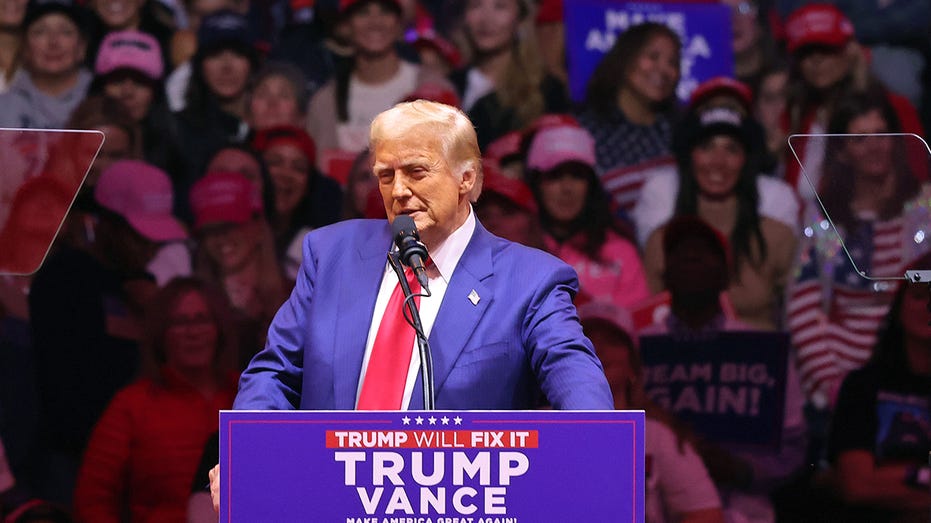
But after Trump’s October 27 MSG rally, Tabacco says he doesn't see any loyal Republicans running to the Second Circuit in the next week to root out Judge Reyes’ inexplicable voting ruling.
“New York has a chance to go red for the first time since Ronald Reagan. No one with an America First or New York First political philosophy gets in the way of that. But afterward, we will assess our options, including bringing these issues directly to Congressional oversight.”
A Pattern of Judicial Misconduct in EDNY
Frank Parlato’s investigations have raised troubling questions about judicial corruption and institutional integrity in the Eastern District of New York. Whether it’s Judge Komitee’s financial entanglements in the Ozy Media case or Judge Gujarati’s prosecutorial mindset in the OneTaste trial, these cases suggest a broader pattern of judicial overreach and conflicts of interest.
Judge Reyes’ role in disenfranchising Republican voters further underscores the need for scrutinizing how the Brooklyn federal court operates.
As these cases continue to unfold, calls for greater transparency and reform within the federal judiciary are growing louder.
Legal experts are demanding that judges like Komitee, Gujarati, and Reyes be held accountable for their actions and that measures be taken to prevent future conflicts of interest from compromising the justice system.
Parlato promises that this national news story will have important consequences for judicial conduct, quite possibly leading to Watson’s dismissal of conviction.
“The Frank Report will delve deeper into the [Ozy Media] case and provide a wealth of additional extraordinary details never before published,” Parlato wrote.
For Carlos Watson, Nicole Daedone and Rachel Cherwitz, and millions of disenfranchised New York Republican voters, the stakes couldn’t be higher.





